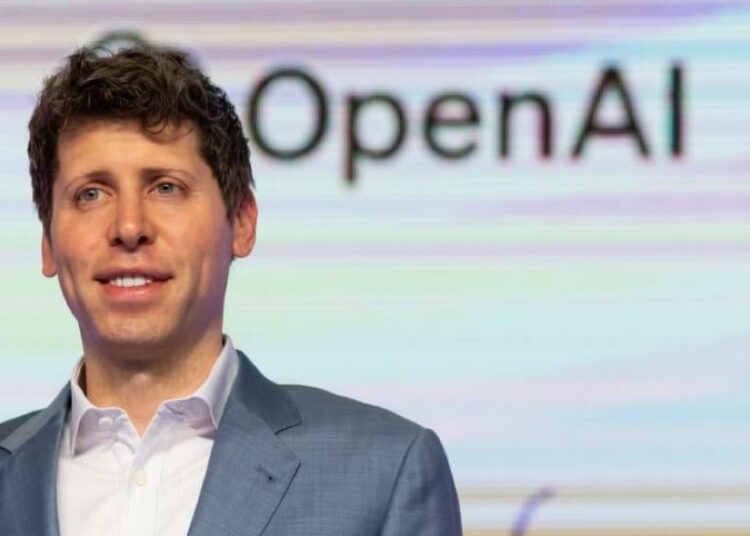In a twist of events, Microsoft Corporation, on Monday, announced the recruitment of Sam Altman, a co-founder and former chief executive officer (CEO) of popular Artificial Intelligence (AI) company, OpenAI.
The development is coming just three days after OpenAI announced the sack of Altman and his immediate replacement with chief technology officer Mira Murati in an interim capacity.
Taking to his X handle (formerly Twitter) on Monday, chairman and CEO of Microsoft Corporation, Satya Nadella, said Sam Altman and Greg Brockman, together with some unnamed colleagues, will be joining Microsoft to lead a new advanced AI research team, adding that they looked forward to moving quickly to provide them with the resources needed for their success.
Nadella wrote: “We remain committed to our partnership with OpenAI and have confidence in our product roadmap, our ability to continue to innovate with everything we announced at Microsoft Ignite, and in continuing to support our customers and partners. We look forward to getting to know Emmett Shear and OAI’s new leadership team and working with them. And we’re extremely excited to share the news that Sam Altman and Greg Brockman, together with colleagues, will be joining Microsoft to lead a new advanced AI research team. We look forward to moving quickly to provide them with the resources needed for their success.
RELATED: OpenAI Board Sacks Altman As CEO
“I’m super excited to have you join as CEO of this new group, Sam, setting a new pace for innovation. We’ve learned a lot over the years about how to give founders and innovators space to build independent identities and cultures within Microsoft, including GitHub, Mojang Studios, and LinkedIn, and I’m looking forward to having you do the same.”
LEADERSHIP reports that Altman was on Friday relieved of his appointment by the Board of OpenAI.
Chief technology officer Mira Murati was immediately appointed interim CEO to lead OpenAI.
The AI company added that a search process was underway to identify a permanent successor.
A member of OpenAI’s leadership team for five years, Murati has played a critical role in OpenAI’s evolution into a global AI leader. She brings a unique skill set, understanding of the company’s values, operations, and business, and already leads the company’s research, product, and safety functions. Given her long tenure and close engagement with all aspects of the company, including her experience in AI governance and policy, the board believes she is uniquely qualified for the role and anticipates a seamless transition while it conducts a formal search for a permanent CEO.
It added that Altman’s departure follows a deliberative review process by the board, which concluded that he was not consistently candid in his communications with the board, hindering its ability to exercise its responsibilities. The board no longer has confidence in his ability to continue leading OpenAI.
In a statement, the board of directors said: “OpenAI was deliberately structured to advance our mission: to ensure that artificial general intelligence benefits all humanity. The board remains fully committed to serving this mission. We are grateful for Sam’s many contributions to the founding and growth of OpenAI. At the same time, we believe new leadership is necessary as we move forward. As the leader of the company’s research, product, and safety functions, Mira is exceptionally qualified to step into the role of interim CEO. We have the utmost confidence in her ability to lead OpenAI during this transition period.”
OpenAI’s board of directors consists of OpenAI chief scientist Ilya Sutskever, independent directors Quora CEO Adam D’Angelo, technology entrepreneur Tasha McCauley, and Georgetown Center for Security and Emerging Technology’s Helen Toner.
As a part of this transition, Greg Brockman will be stepping down as chairman of the board and will remain in his role at the company, reporting to the CEO.
OpenAI was founded as a non-profit in 2015 with the core mission of ensuring that artificial general intelligence benefits all of humanity. In 2019, OpenAI restructured to ensure that the company could raise capital in pursuit of this mission, while preserving the nonprofit’s mission, governance, and oversight. The majority of the board is independent, and the independent directors do not hold equity in OpenAI. While the company has experienced dramatic growth, it remains the fundamental governance responsibility of the board to advance OpenAI’s mission and preserve the principles of its Charter.





